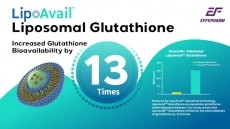Casein speeds up wound healing – study

The discovery could pave the way for using casein – a protein found in cow's milk – as an affordable alternative to silver or other materials commonly used for wound-dressing.
The study was carried out by University College London researchers and published in the Journal of The Royal Society Interface. To conduct the experiment, the researchers created a bandage-like polymer from a mix of casein and a type of biodegradable polyester (PCL) and obtained 32 adult rats, which were induced with diabetes and received small skin perforations. The rats were then split into three groups – a control group that received no treatment, a group treated with normal bandages; and a group treated with the casein-infused fibers. The healing process was analyzed and photographed on day 0, 3, 7, 10 and 14.
The results showed that ‘casein-loaded fibres showed the greatest reduction in wound area following treatment, where almost complete regeneration was seen in the 14-day testing period’. In comparison, the wound areas in rats in the control group and the group that was treated with normal bandages decreased to 45.6 ± 5.7% and 31.1 ± 10.8% respectively (a smaller wound area means it’s healed quicker).
“Based on our results, the most ideal wound healing conditions were obtained with CLF, while the PF group exhibited better results compared to the control group. On the 14th day, we can see that the wound is almost completely reepithelialized and significantly more covered than the control group wound,” the researchers concluded.
Moreover, embedding the casein in the fibers was confirmed to be ‘one of the most efficient forms’ as a wound healing material. According to the study, fibrous materials produced using PCL support gas exchange and can regulate the humidity for the wound healing process. Coupled with casein, which has anti-inflammatory properties, this type of bandage can make wound-healing simpler.
“This work demonstrates the effectiveness of casein, a highly abundant and inexpensive protein which can be used in wound healing materials, to improve the healing process. Furthermore, casein has the potential to provide antibacterial protection as well, which should be explored by further studies,” the researchers concluded.
Source:
Casein fibres for wound healing
Ahmed, J, et al
Published: 26 July 2023
DOI: 10.1098/rsif.2023.0166













